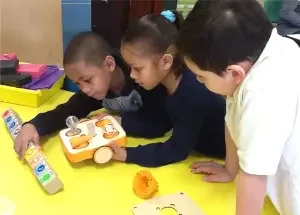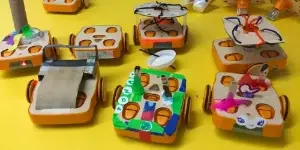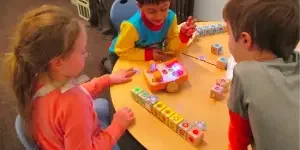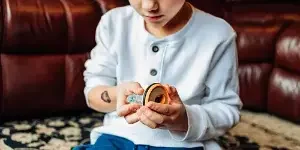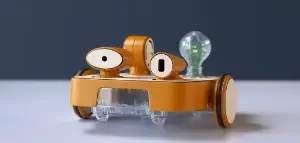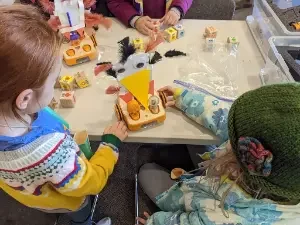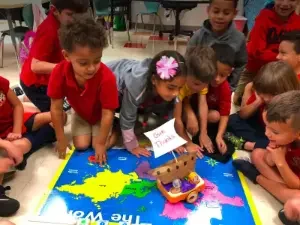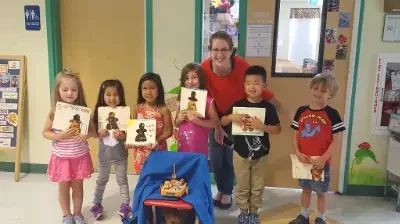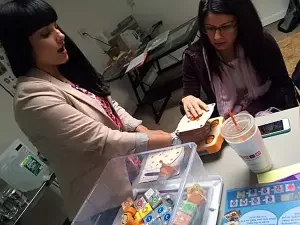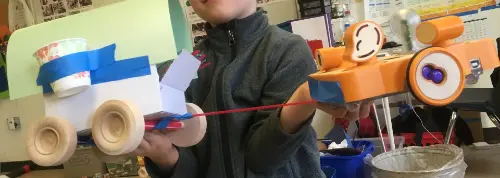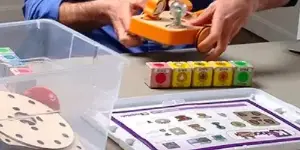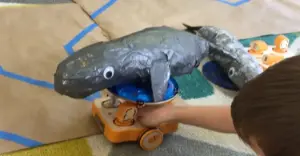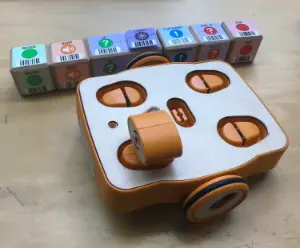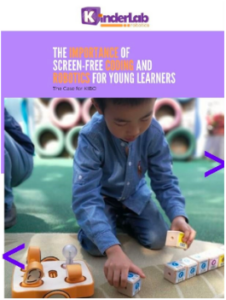Slice of MIT: Can a Screen-Free Robot Teach Coding—and Build Character?
In this MIT Alumni Association Publication, our Co-founder and Chief Scientist, Dr. Marina Bers talks to her alma mater about her career in developing innovative educational technologies for young learners.
The article reads in part:
“Technology is advancing, but human problems—how to live together in a multicultural, diverse, multiethnic society—have been around forever. Technology may change the way we address some of those issues,” she says, “because it involves problem solving, an open mind, trial and error.”
Through KinderLab Robotics, a startup she cofounded in 2013, Bers is working to make another of her inventions for early childhood learners available worldwide. An expansion of ideas she worked on at MIT with [Seymour] Papert, KIBO is a robot that uses wooden blocks (rather than a screen) to teach a basic, tactile programming language. Children queue up a set of actions by lining up individual blocks, each of which has a bar code, and using the robot to scan them. Then they press a button and KIBO enacts their program—performing a dance, telling a story, and so on.
Students learn not only how to engage with KIBO most effectively but also how they can use it to interact positively with others.
Her work with KIBO and ScratchJr, as well as the multiple books she has authored, frames technology-based learning in a fun, communal way that convinces young children they can master these skills no matter their background or style of learning. “If we don’t start early, we have to deal with stereotypes,” she says. “By eight years old, many kids already think they’re not good at STEM, and it’s usually the girls and minorities.”
“I’m not focused on developing the next generation of programmers,” she explains. “I just want to impact the next generation of citizens—and they need to learn new skills and think in new ways.”
Read the full article.

